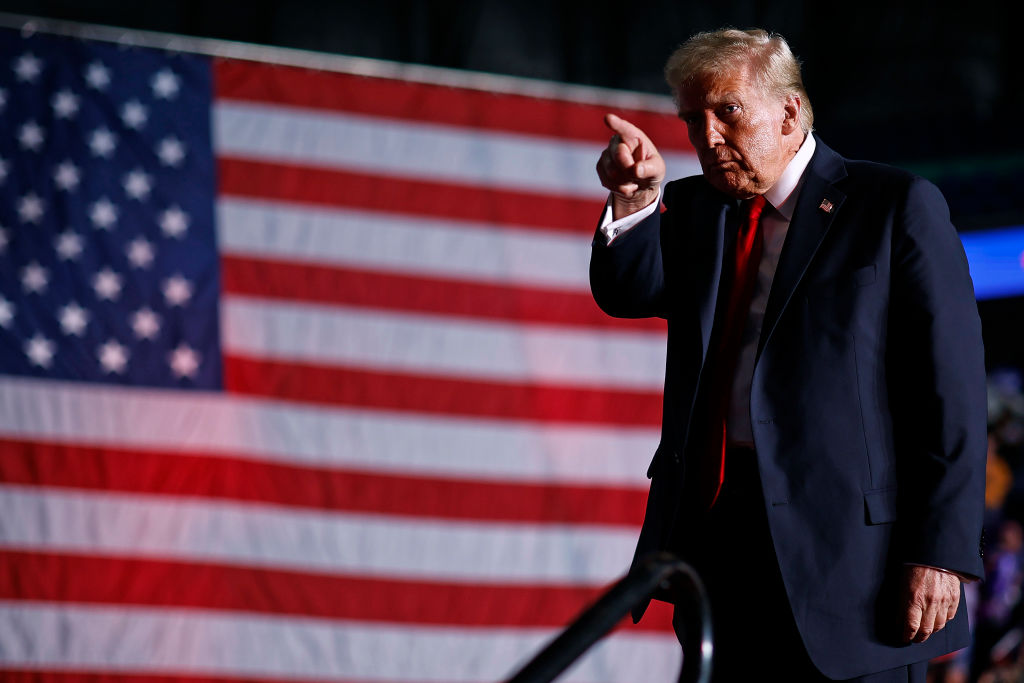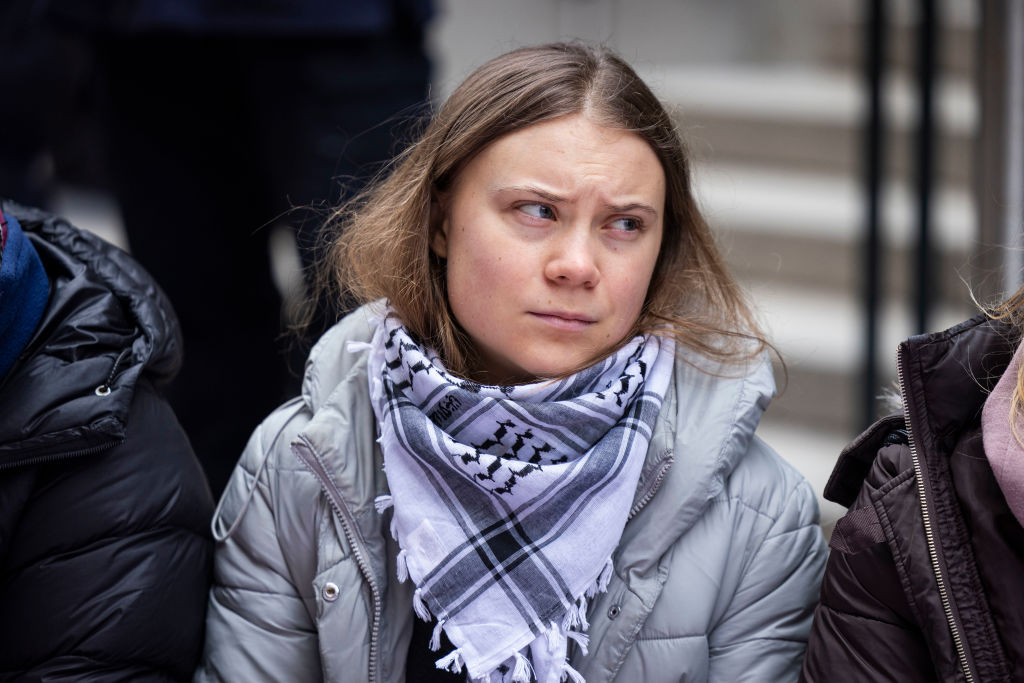Are you still looking for Christmas presents? I have a fashionable doorstopper to recommend to you, courtesy of the former German chancellor Angela Merkel. Sure, technically it is not a doorstopper but a “Memoir.” In this memoir she accuses the German people of not being curious enough about foreign cultures, and laments that Germany is not “that great” for migrants anyway. So what would be more fitting than using the book written by the person who kept Germany’s borders open also to keep your doors open? Angela Merkel has now become the Eastern German version of Barack Obama: Both politicians never viewed themselves as serving their people, but as benevolent patriarchs (or matriarchs) lording over undeserving subjects.
You might think I am exaggerating, but I really am not. In a 2017 piece, Politico writes about the journey of the childless Ms. Merkel from Mädchen (girl) to Mutti (Mom). In 2021, a columnist of the left-leaning German weekly Der Spiegel wrote an entire book titled Mutti wars nicht (“It was not Mom’s fault”), trying to exonerate her for the disastrous migration policies that began in 2015. Reading through her memoirs makes one realise that we got her all wrong. You see, it is not her who has disappointed us, but we are the disappointment to her. The title of her book is one word: Freedom – which is ironic, given that since her tenure, the German’s are less free than ever. Women are no longer free to walk in the streets, Jews and gays are no longer free to move around in certain parts of the city, Germany energy companies are no longer free to use nuclear power, and German companies are no longer free to do business. Maybe Ms. Merkel means “Freedom” in the same sense that the German Democratic Republic – the former East Germany – in which she grew up was “democratic.”
There are numerous perspectives on Merkel’s predecessor, Gerhard Schroeder, who led both Germany and the Social Democratic Party (SPD) from 1998 to 2005. And I cannot believe I am writing this, but I actually miss the man.
Although not a staunch Socialist, he garnered the nickname Genosse der Bosse (Comrade of the CEOs) due to his close ties with business leaders. His labour market reforms significantly altered the German welfare state, and his friendly relationship with Vladimir Putin earned him the moniker Gas-Gerd — Gerd being the nickname for Gerhard — especially as he later worked for Gazprom. I do criticise his approach to Russia and support for mass migration, but for all his faults Schroeder was a realist who recognized his country’s potential and limitations. A pragmatic in nature, he often deviated from socialist doctrines when necessary: His welfare and labour market reforms should be credited with preventing Germany’s economic decline in the early 2000s, even though the current government has done all it could to reverse Schroeder’s work. I have a feeling that under his chancellorship the SPD would have transformed into something more like their Danish or Swedish sister parties, who moved massively to the Right on questions of migration.
It is also true that Schroeder’s government initiated the nuclear phase-out, but this was more on paper than in reality. Actual nuclear power capacity remained largely unchanged during his term but was later significantly reduced under his successor, Angela Merkel. She, of the conservative Christian Democratic Union (CDU), succeeded the Socialist-Green coalition in 2005 but her administration basically championed Green policies, making her Germany’s true first Green chancellor. During her tenure, Merkel accelerated the lunatic energy transition, with nuclear power capacity dropping from 20 GW when she took office to just over 5 GW when she left. Although Schroeder was criticized as Gas-Gerd, it was Merkel who solidified Germany’s reliance on Russian gas through Nord Stream 2 and a ban on fracking in 2017. This occurred despite Russia’s clear intentions in Eastern Europe, underscored by conflicts in Georgia and the 2014 annexation of Crimea. A strategic foreign policy might have minimized dependence on Russia, but Merkel pursued a different path, maintaining an ambiguous stance on Ukraine that neither allowed NATO membership nor facilitated military preparedness against potential Russian aggression.
In a recent interview with Der Spiegel, Merkel showed no regret over her decisions, claiming to be aware of the dangers posed by Putin, yet failing to explain why she effectively gave him leverage over German industrial policy. Regarding her 2015 decision to open Germany’s borders to mass migration, Merkel argues that the real issue is the German populace’s reluctance to embrace foreign cultures, adding that life is not easy for migrants in Germany either. She describes her immigration policy as a delicate balance between fears of Islamist terror attacks and concerns about excessive intolerance in Germany. Ah yes, the price of tolerance: The occasional stabbing and gang rape. Very much to Ms. Merkel’s surprise, more and more Germans are unwilling to pay it.
What exactly has been the benefit of mass migration and the transformation into a “multicultural society”? Well, here is one – at least if you are an Islamist: “Berlin Police chief warns Jews, gay people to ‘be careful’ in Arab neighbourhoods.” There were no “Arab neighbourhoods” before Angela Merkel, and now that they exist, they do not seem to be particularly taken by the idea of multiculturalism. Instead, these neighborhoods are becoming quite monocultural: No Jews, no gays, and in some areas soon no Germans. You think I am exaggerating? Yes, but only slightly: “The integration commissioner for the state of Lower Saxony, Doris Schröder-Köpf, visited the Peter Ustinov School in Hannover-Ricklingen on Wednesday […]. 90 per cent of the children here are foreigners.”
The rise of the Alternative for Germany (AfD) becomes less surprising in light of this interview, which criticises average Germans who wish to preserve their traditional way of life. Merkel appears to favour future coalition partnerships with the Greens, chastising her CDU/CSU successors for their harsh stance against them. She also expressed disappointment over Kamala Harris not winning the U.S. presidency, echoing her previous hopes for Hillary Clinton in 2016.
Predicting the future is challenging, but if the CDU/CSU adheres to Merkel’s policies, the AfD could emerge as Germany’s new conservative force, potentially leading to the decline of her own party. After all, Germany already has a Green party, rendering a second one unnecessary.






Trump success points to profound shift in appeal to minority voters